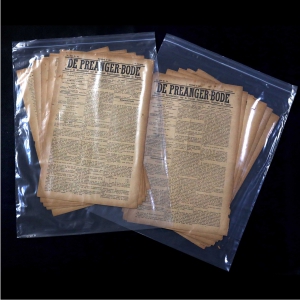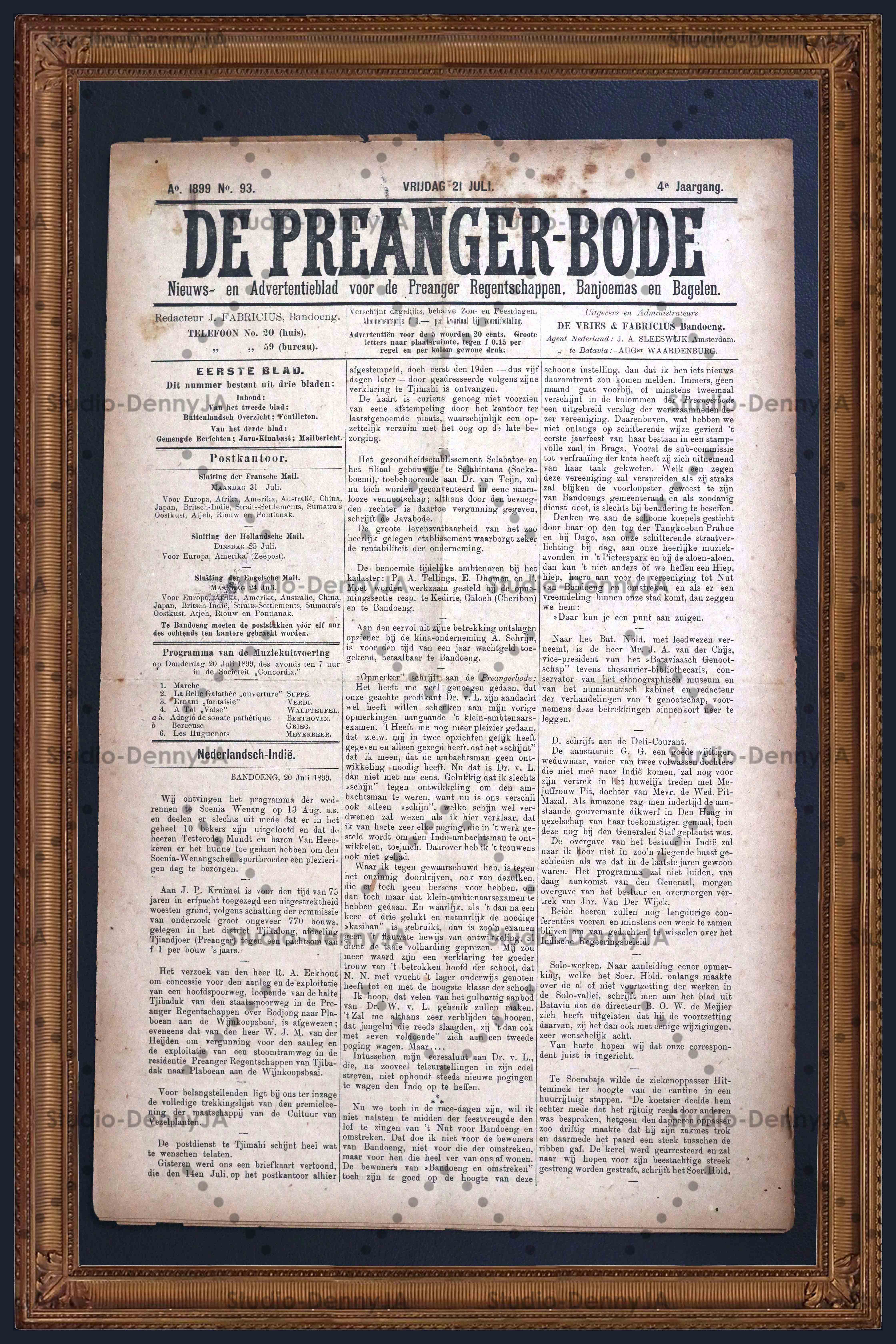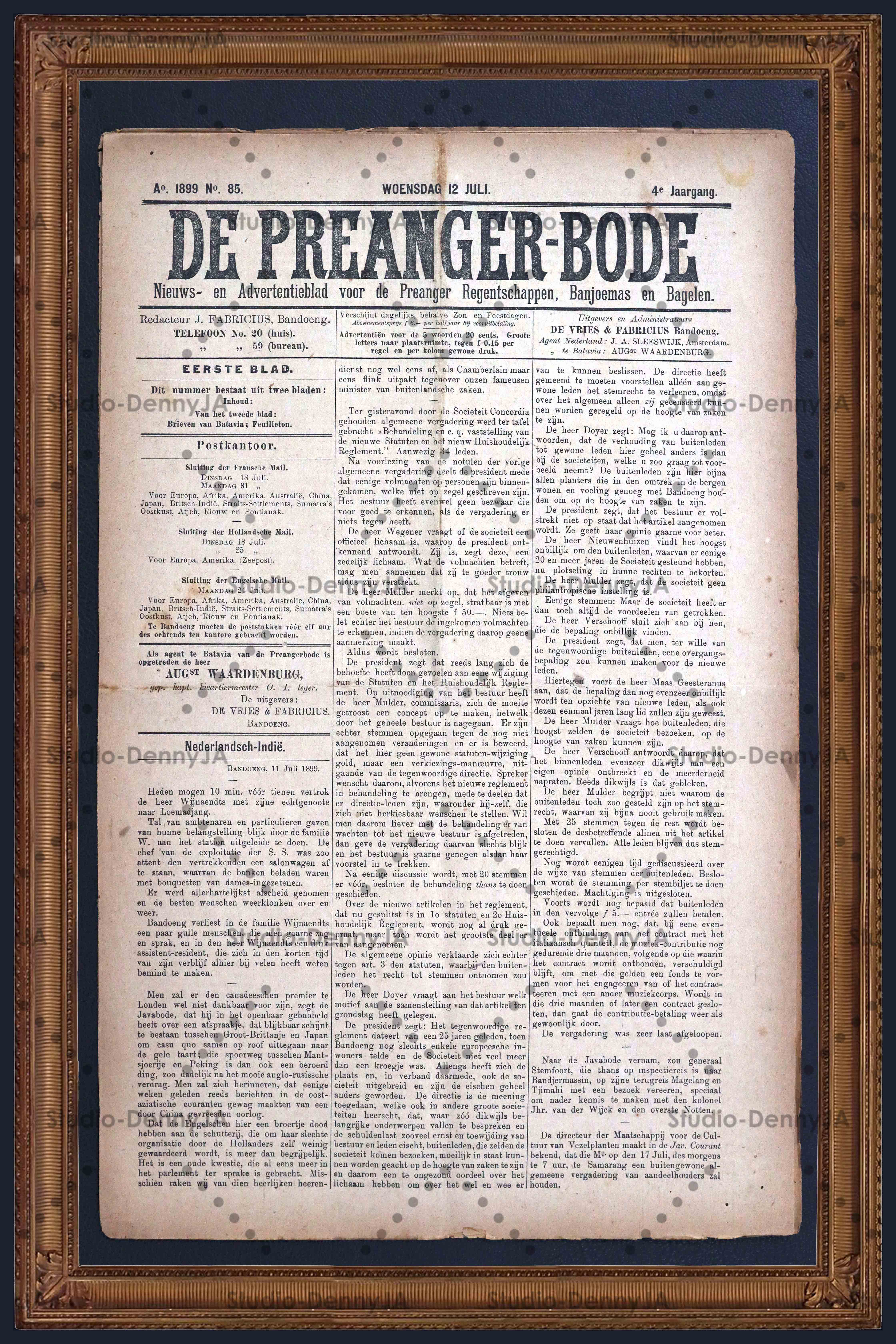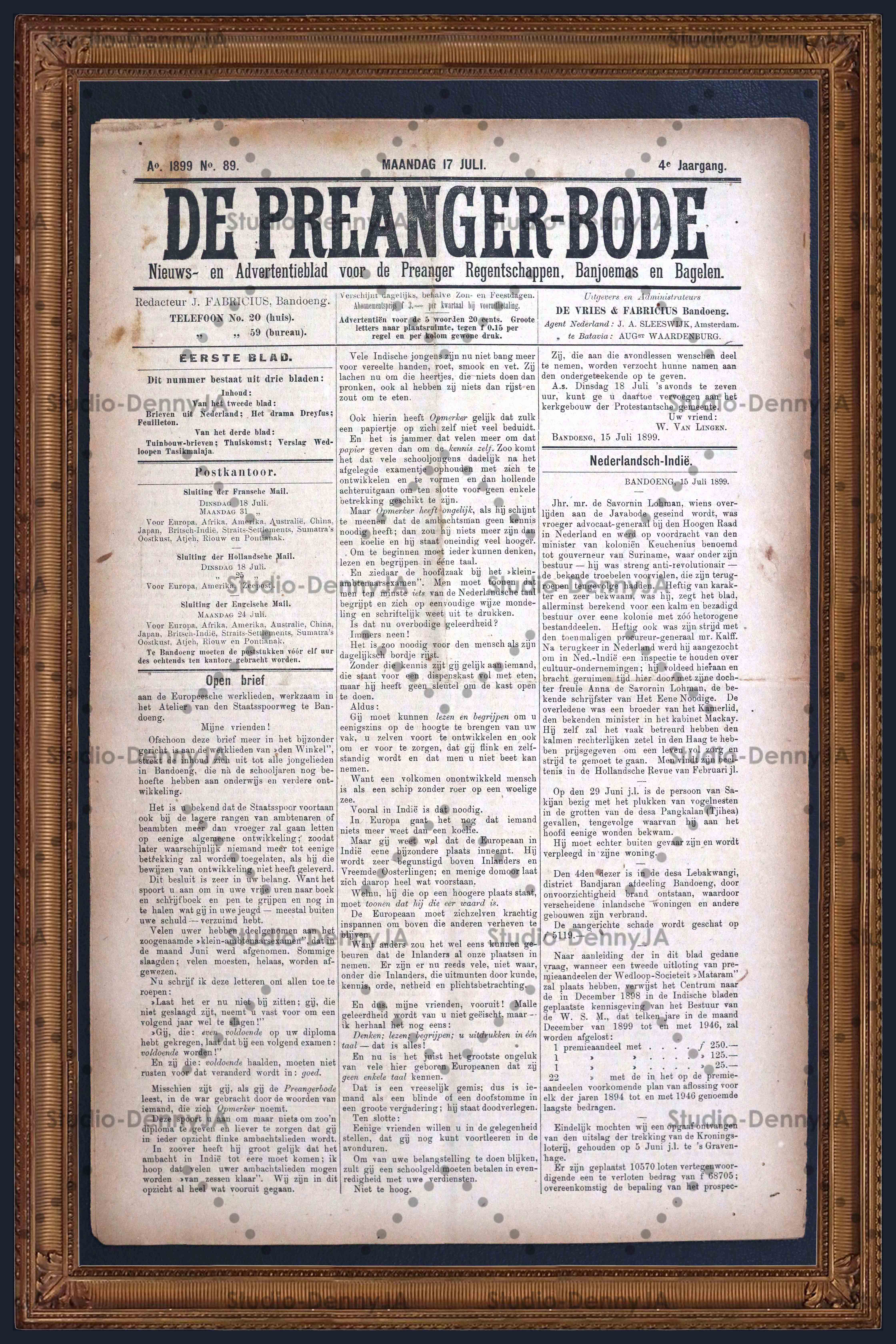
Legendary Newspapers Denny JA Collections
De Preanger-Bode - Bandung
by JJ Rizal
The full name of this newspaper is Algemeen Indische Dagblad de Preangerbode and it is with this name that it became famous. However, in its first edition this newspaper used the name De Preangerbode: Nieuws- en Advertentieblad voor de Preanger-Regentschappen, alias De Preangerbode: news and advertisement newspaper for the Priangan (West Java).
Announcements for the publication of this newspaper appeared in the newspapers Java-Bode 23 June 1896 and De Locomotief 26 June 1896. On 6 July 1896. The first edition of Preangerbode was published. This local Bandung newspaper, published by JR de Vries & Co in Bandung and printed by HM van Dorp & Co in Batavia, turned out to be circulating throughout the Dutch East Indies.
Preangerbode contains four pages and is published every Monday. The subscription price is 2.50 gulden half a year for the Dutch East Indies and 3 gulden for the Netherlands. JHLE van Meeverden became the newspaper's first editor-in-chief. Meeverden only briefly led this paper. Then, between 1896 and 1902, Jan Fabricius was the leader, a writer, journalist, and well-known actor. When Fabricius had to return to Haarlem, the Netherlands, in 1902, Preangerbode was sold to Kolff & Co. Since then, the editorial leadership was held by G.L. La Bastide until 1906 and was replaced by Th. E. Stufkens until 1921.
It was during the Stufkens era that the attitude of the editors of Preangerbode became clearer, namely as the mouthpiece of the colonial government. The Preangerbode not only routinely reported on the success of the Dutch East Indies government, but also reactively attacked those deemed to be a danger to the government. The case of Abdul Muis is the most obvious example. Abdul Muis was considered dangerous because he was listed as a member of the Indische Partij which was banned by the governor in 1912. He also together with other members of the Indische Partij, Suwardi Suryaningrat and Tjipto Mangunkusumo, founded the Bumiputra Committee. The Bumiputera Committee was thought to be aiming to participate in "celebrating 100 years of Dutch independence from France”, on 27 November to 1 December 1913. However, it turned out to have the opposite aim and instead sued the Dutch East Indies government with his famous writing "als ik een Nederlander was" (If I Was a Dutchman)[1]. This is what then makes Muis as a print-ready reader on Preangerbode must be excluded at all costs. The reason was found, namely by forbidding Muis to go to Jakarta to accompany his wife who was about to go on a pilgrimage. In fact, Muis was eventually arrested by the police along with Wignjadisastra—the editor of the Kaoem Moeda newspaper—for being involved in printing and distributing the pamphlet “als ik een Nederlander was”.[2]
Preangerbode as a red plate newspaper (government stooge) has a long life and has succeeded in becoming a well-established national local newspaper in business, especially after being held by CW Wormser. This strong person in the world of journalism, apart from controlling De Locomotief, also controlled Het Algemeen Handelsblad voor Nederlands Indie and Het Nieuws van den Dag. It was under Wormser that Preangerbode turned from a local newspaper into a national newspaper with international news. The circulation of Preangerbode was even wider and it was listed as the fourth largest newspaper in the Dutch East Indies. Preangerbode is also listed as the only major newspaper published in two editions: the morning edition and the evening edition.
Although it finally ceased to be published in 1957, Preangerbode remains one of those newspapers that is more than half a century old. This newspaper was stopped when the Dutch East Indies was under Japanese militaristic rule between 1942 and 1945, but in 1946 it was published again under the name Algemeen Bandoengsch Dagblad de Courant. JP Verhoek led Preangerbode until this newspaper was not allowed to be published when the policy of nationalization of foreign companies was implemented. The fate that befell Preangerbode also befell Dutch newspapers in other cities, such as De Java-Bode, Het Nieuws van den Dag, De Nieuwsgier (Jakarta); De Locomotief (Semarang), De Vrije Pers and Nieuw Soerabaiasch Handelsblad (Surabaya).
[1] Ahmad Adam in The Vernacular Press and the Emergence of Modern Indonesia (1995, p. 280).
[2] There are also those who say that Abdul Muis was treated this way because he often wrote critical articles in De Preangerbode which, if he didn't pass in De Preangerbode, he sent the article to the De Express newspaper, that well known to be very critical to Dutch Colonial Government.



